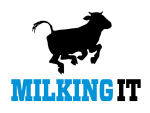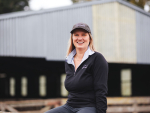Open Country Dairy (OCD) chief executive Steve Koekemoer says milk processing through its factories is above forecast. Favourable weather and soaring farmgate milk prices are the main contributors.
OCD has processing sites at four locations: Horotiu, Waharoa, Wanganui and Awarua. It has a forecast milk price range of $8.05 to $8.45/kgMS for the February to May period.
Koekemoer says the latest Global Dairy Trade, which saw prices remain flat after huge increases in recent months, provided another solid result with market pricing for whole milk powder and other products holding steady.
“If this trend continues, we may once again exceed our forecast range but for now will continue to monitor it over the coming weeks,” he says.
“The most promising take away from the latest auction was the good demand with reduced reliance on North Asia.
“The higher participation from buyers in the Middle East, Oceania and Central America indicates that these markets are prepared to purchase at the higher pricing levels to secure volume.”
ASB economist Nat Keall notes that the last GDT saw Chinese buyers take their foot off the accelerator, but other regions (particularly South East Asia and Oceania) stepped into the breach, keeping prices supported.
“The auction suggests aggressive Chinese purchasing is likely to ease further, at least in the near term.”
This may result in prices easing a bit over the next auctions. Still, strong postpandemic global demand and softer Northern Hemisphere production should keep prices from falling too far, Keall adds.
BNZ senior economist Doug Steel notes that dairy prices initially dipped as the pandemic broke out, but then recovered strongly to be well above average by early 2021.
He says demand from China has been instrumental to this rebound, while milk supply growth has been relatively muted.
Steel expects prices to ease from current very elevated levels later this year, but still average higher in the year ahead compared to a year prior.
“This should see export values push higher over the coming 12 months compared to the previous 12 months.
“The general export strength is highly supportive of domestic milk prices.”
BNZ is forecasting a 2020/21 milk price is $7.70/kgMS, well north of last season’s $7.14. It is forecasting an opening forecast of $7/kgMS for the next season which builds in some offshore price declines from current levels and a higher effective exchange rate.
Dumping Coal
Open Country Dairy is continuing its journey to improve its environmental footprint.
Its new electrode boiler in Awarua has been running extremely well on 100% renewable energy since installation.
OCD chief executive Steve Koekemoer says OCD is continuing on the journey including converting two old Waharoa coal-fired boilers to operate on wood pellets and woodchip fuel sources.
“We expect this conversion to be completed over the coming months and will start trialling the alternative fuels in the new season.”
OCD discontinued installing coalfired boilers in 2015.
“Our sustainability programme has ensured investments match our long-term carbon footprint reduction goals, and we are proud of our progress,” Koekemoer says.


















